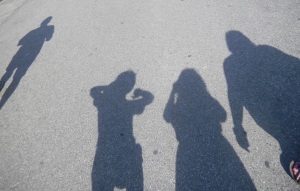Don’t judge me for liking Reality TV – it’s not my fault
Just over a year ago I wrote an article for educators and presenters titled 5 Reasons why Reality TV is not a waste of time (describing 5 lessons learned from Reality TV shows).
Since then, I’ve noticed that “Reality TV Waste of Time” comes up again and again in peoples’ web browser search terms. This makes me wonder, why is Reality TV so strangely compelling to so many?
Let’s face it. “Reality” TV is a bit of a misnomer since there is little “real” about the story arc portrayed over the course of a season. Out of hundreds of hours of video, a post hoc narrative is assembled to reference traditional literary/cinematic tropes. What we see is merely an illusion of the unscripted and imperfect.
Nonetheless, these shows tap into some deeply human essentials:
First, we all seek social connectedness and community and are reflexively interested in one-anothers’ lives. If you live in a small town everybody knows your business, but populations are increasingly centred in urban environments within which it’s not uncommon to have limited (or no) interaction with our geographically proximate neighbours. Enter Reality TV:
Television occupies our most intimate spaces offering a simulacrum of community and connectedness (Allen & Hill, 2004).
Furthermore, we think in narrative structures – the human brain is hard-wired for story-telling. Reality television simultaneously represents and distorts powerful human stories. (Roche & Sadowsky, 2003).
The modern “quests” described by Reality TV represent a contemporary re-imagining of centuries-old themes: innocence, villainy, betrayal, honour, valour, (in)justice, victory and defeat (Ibrahim, 2007).
So, from a mortifying wealth of choices, here are a few illustrative examples:
The epic journey: Amazing Race, Survivor, Ice Road Truckers
The Combat Myth: Hell’s Kitchen, America’s Got Talent, The Apprentice
The search for the “Holy Grail”: Storage Wars, American Pickers, Pawn Stars
Love and betrayal (and sometimes betrothal): The Bachelor/Bachelorette, Four Weddings, Real Housewives
A window into the lives of others: LA Ink, 19 Kids and Counting, Breaking Amish.
I am not saying that any time watching any TV is time well spent. There are lots of better things to do. But…all things in moderation, that’s the key.



